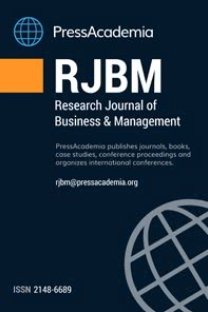CORRELATIONAL INFERENCES FROM TIMES HIGHER EDUCATION 2017 WORLD UNIVERSITY RANKING
Purpose- If knowledge is a strategic commodity as asserted by so many scholars then the amount and the quality of service provided by the universities are to be assessed in a variety of ways. The general aim of this study is to extract some information from the available evidence about tertiary education. The purpose in operational terms is to make use of data published by Times Higher Education (THE) 2016-17 World University Rankings, and United Nations Development Program (UNDP). Methodology- Pearson correlation is the statistical method used to make inferences. The variables correlated are the measures taken by Times Higher Education in 2016-17. Namely, these are Teaching, Research, Citations and International Outlook. Some Human Development Indicators (HDI) are the variables used as benchmarking criteria taken from Human Development Report 2014 published by UNDP. These are HDI-2012, Research and Development Expenditure, Educational Expenditures, PISA-2012 Scores. Findings- The computations yields mostly positive high correlations between pairs of variables mentioned above. General Educational Expenditure seems to be the variable correlated not so significantly with the others. Conclusion- The present report displays results in conformity with the expectations. Conclusions are valid for the countries in general and for Turkey in particular separately as well as for the whole bunch of universities. The author hopes to collect critical and complementary comments in return.
Keywords:
Times Higher Education, university ranking, higher education, teaching research,
___
- Anderson, L.W. et. al. (Eds.). (2001). A taxonomy for learning, teaching and assessing. New York: Longman.
- Baykal, A. (1978). Yükseköğretim programlarının sıradüzeni. Boğaziçi University Dergisi, Eğitim, 6(1978), 11-18.
- Boudett, K.P., City, E.A., Murnane, R.J. (Eds.). (2008). Data Wise. Harvard Education Press.
- Calderon, A. (2010). Emerging countries for student recruitment in tertiary education. Paper presented to the IMHE‐OECD Conference, Higher
- Education in a World Changed Utterly: Doing More with Less, Paris September 2010.
- Deng H. et al. (1999), Inter-company comparison using modified TOPSIS with objective weights, Computers and Operations Research, 27(10), 963-973
- Gaynor, A. K. (1998). Analyzing problems in schools and school systems. New Jersey: Lawrence Earlbaum.
- Hood, S. (2008). Evaluation Roots Reconsidered: As a Hilliard, a Fallen Hero in the “Nobody Knows My Name” Project, and African Educational Excellence. Review of educational research. September 2008, vol. 78 no. 3 410-426.
- Koç, N., Gülleroğlu, H.D., Coşkuner, D.T. (Yayına hazırlayanlar). I. Ulusal Eğitimde ve Psikolojide Ölçme ve Değerlendirme Kongresi. 14-16. Mayıs 2008. Ankara Üniversitesi Eğitim Bilimleri Fakültesi. Ankara.
- Schlechty, P.C. (1997). Inventing Better Schools. San Fransisco: JosseyBass Publishers. T.C. Yükseköğretim Kurulu. (Kasım 2005). Türk yükseköğretiminin bugünkü durumu.
- http://www.claim.org/annual/pdf/AM08_EarlyRegBroch_16.pdf (Erişim Tarihi: 14.04.2011). http://hdr.undp.org/en/ (Erişim Tarihi: 14.04.2011).
- http://www.pisa.oecd.org/pages/0,2987,en_32252351_32235731_1_1_1_1_1,00.html (Erişim Tarihi: 14.04.2011).
- http://timss.bc.edu/timss2007/index.html. (Erişim Tarihi: 14.04.2011) https://www.timeshighereducation.com/ (Son erişim: 1 Ekim 2016) http://hdr.undp.org/en/data (Son erişim: 1 Ekim 2016) https://tedmem.org/vurus/universiteler-neden-ogretmen-yetistiremez (Son erişim: 1 Ekim 2016) http://www.uyk2011.org/kitap/pages/uyk2011_s_2458_2464.pdf (Son erişim: 1 Ekim 2016)
- Murray,D.; Hall, R., Leask, B., Marginson, S., Ziguras, C. (2011). State of current research in international education. Prepared for AEI supported International Education Research-Policy Symposium. Technical Report · January 2011.
- Rizvi, F. & Lingard, B. (2010). Globalizing Education Policy, London and New York, Routledge.
- Savaş, E. ve Baykal, A. (2011). Üniversitelerin Sıradüzeni ve Sıralama Ölçütlerinin Ağırlıkları. Uluslararası Yükseköğretim Kongresi: Yeni Yönelişler ve Sorunlar (UYK-2011) 27-29 Mayıs 2011, İstanbul; 3. Cilt / Bölüm XVI / Sayfa 2458-2464.
- Yayın Aralığı: Yılda 4 Sayı
- Başlangıç: 2014
- Yayıncı: PressAcademia
